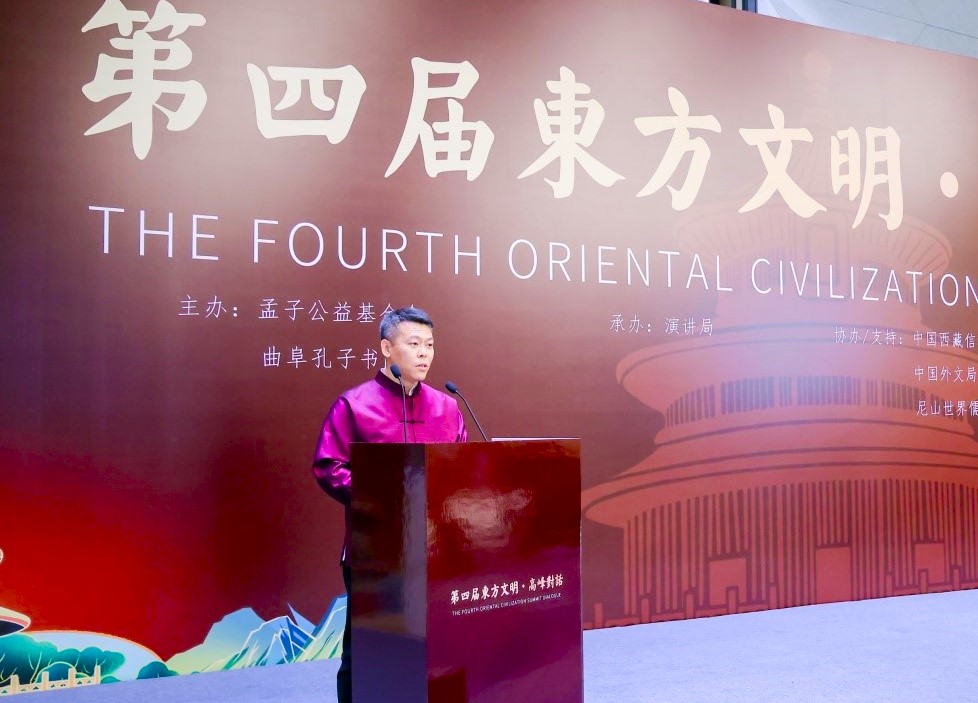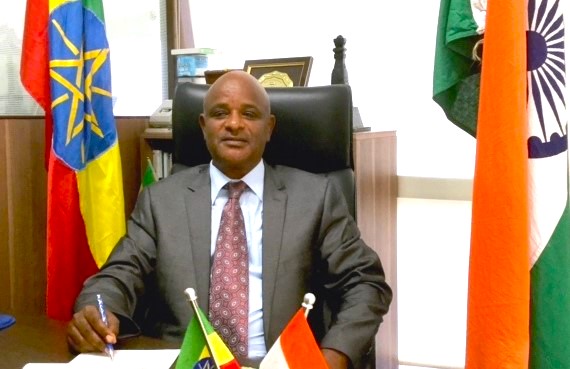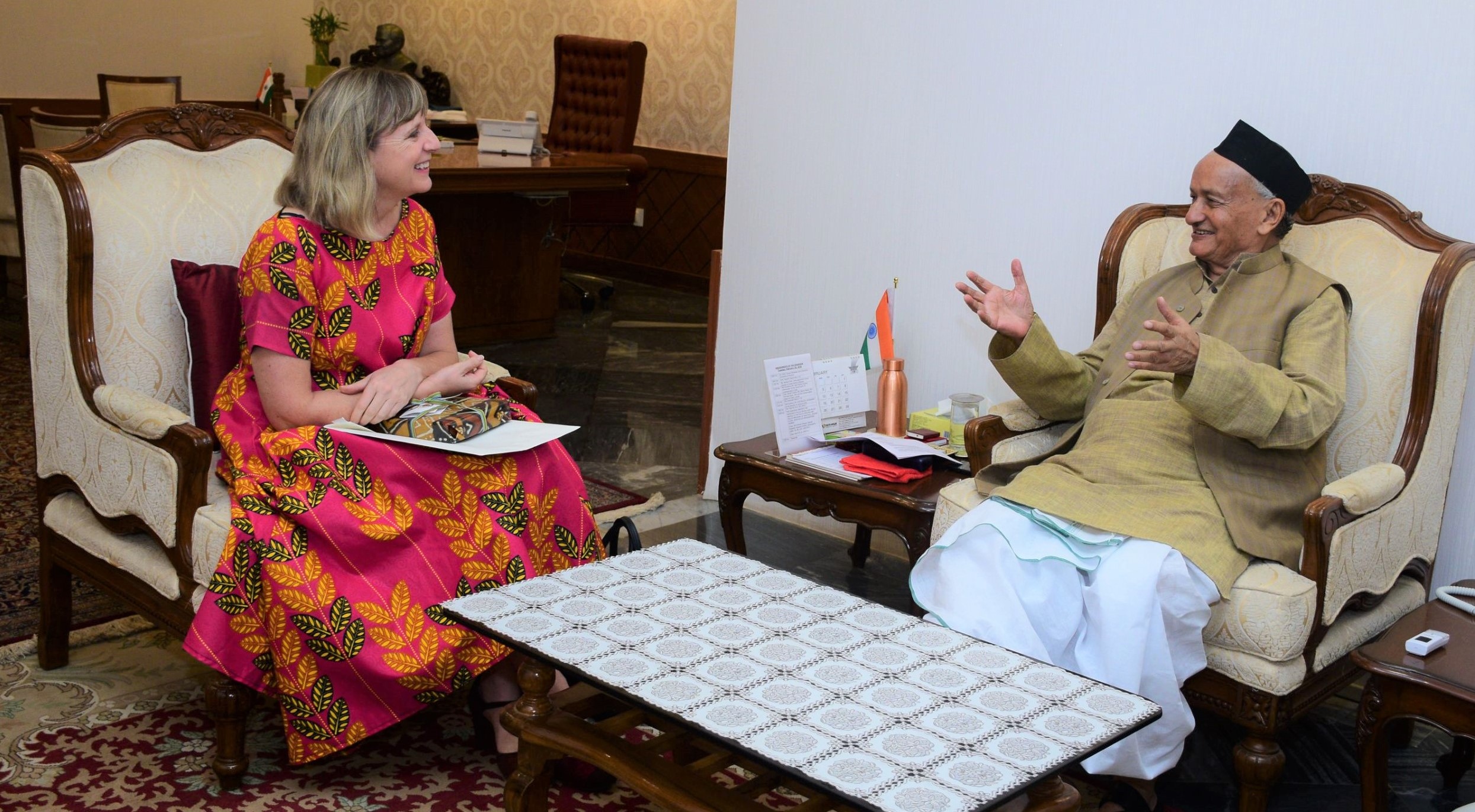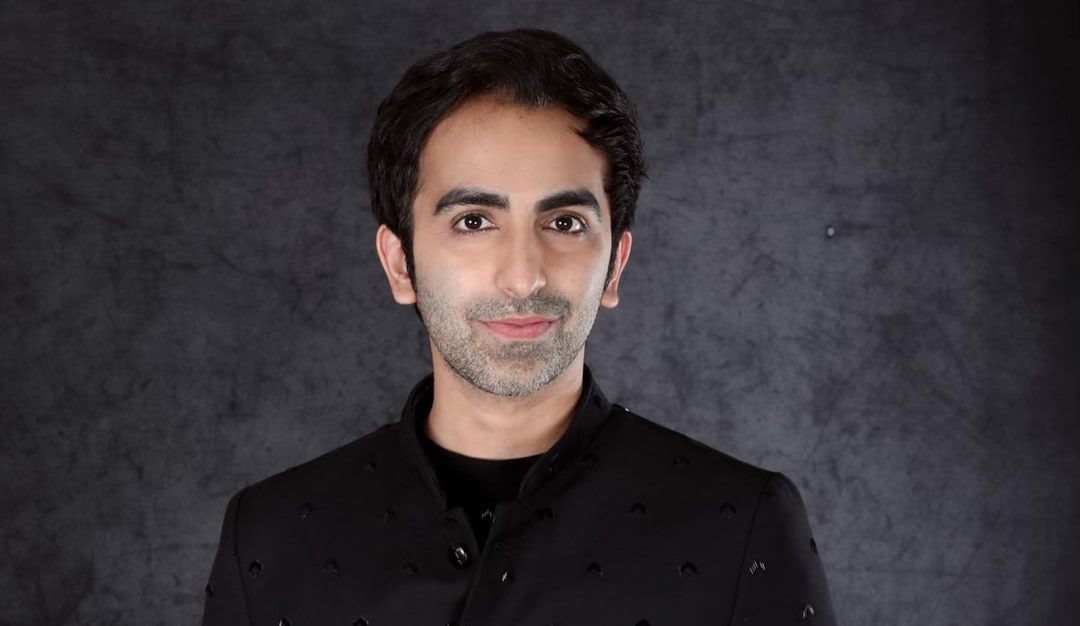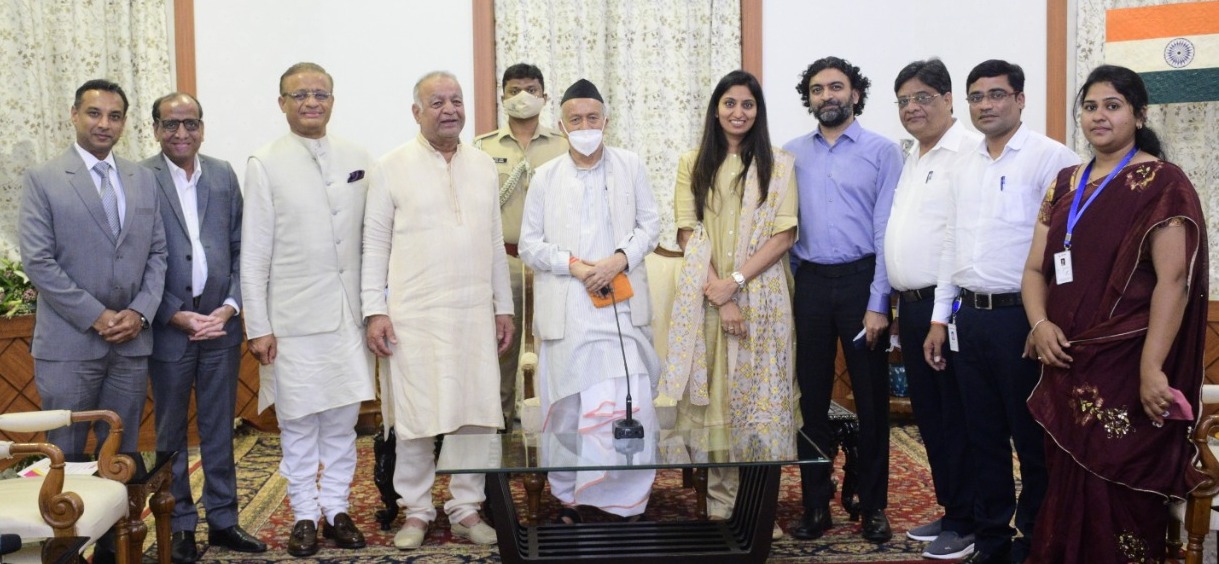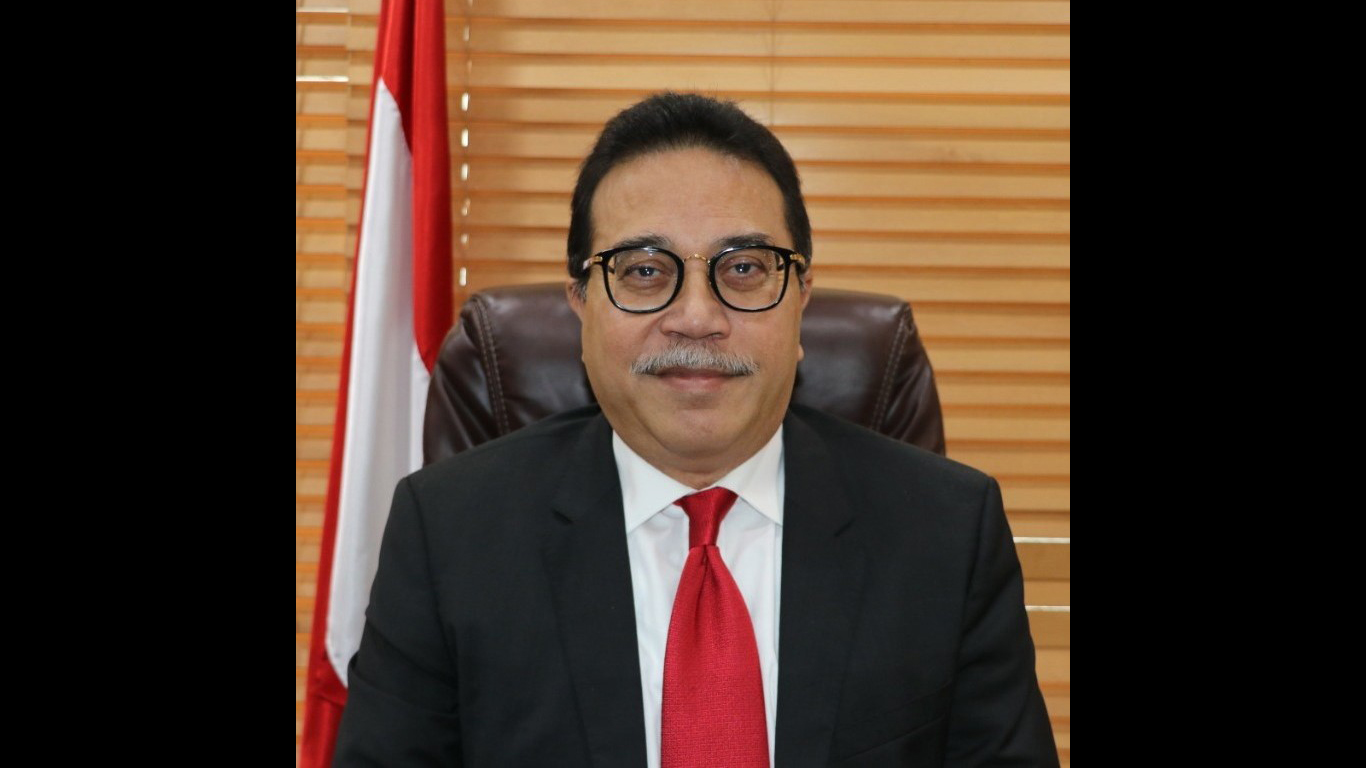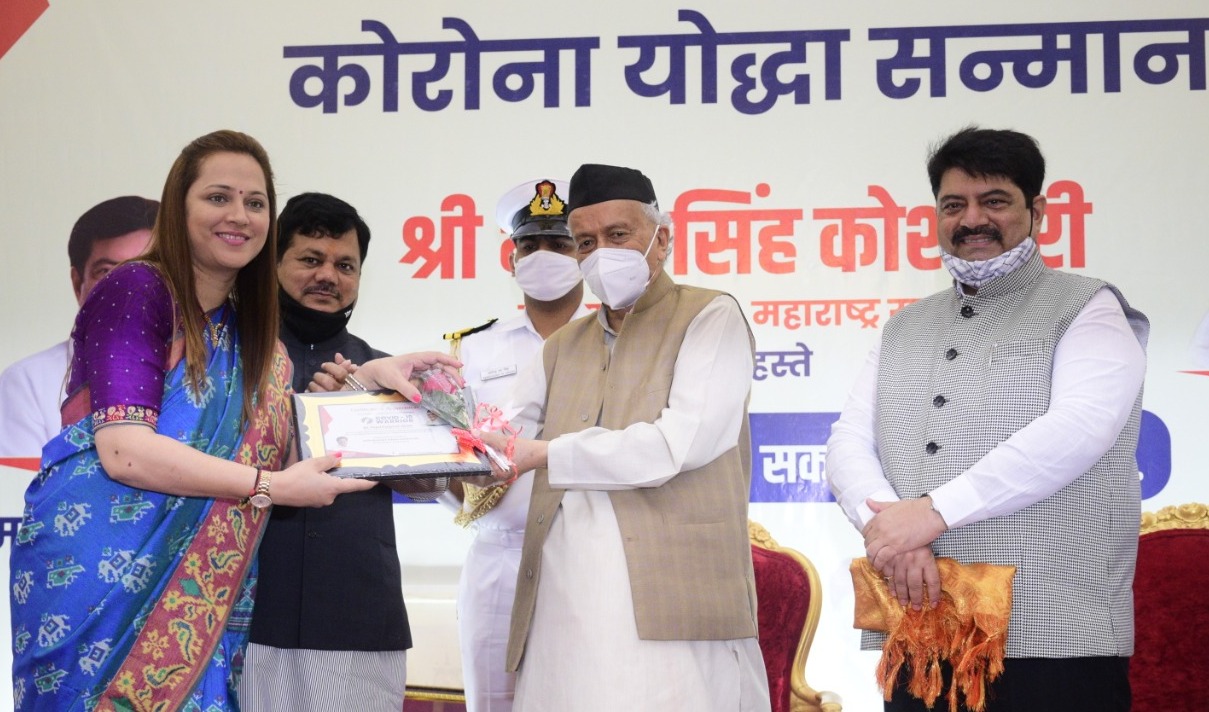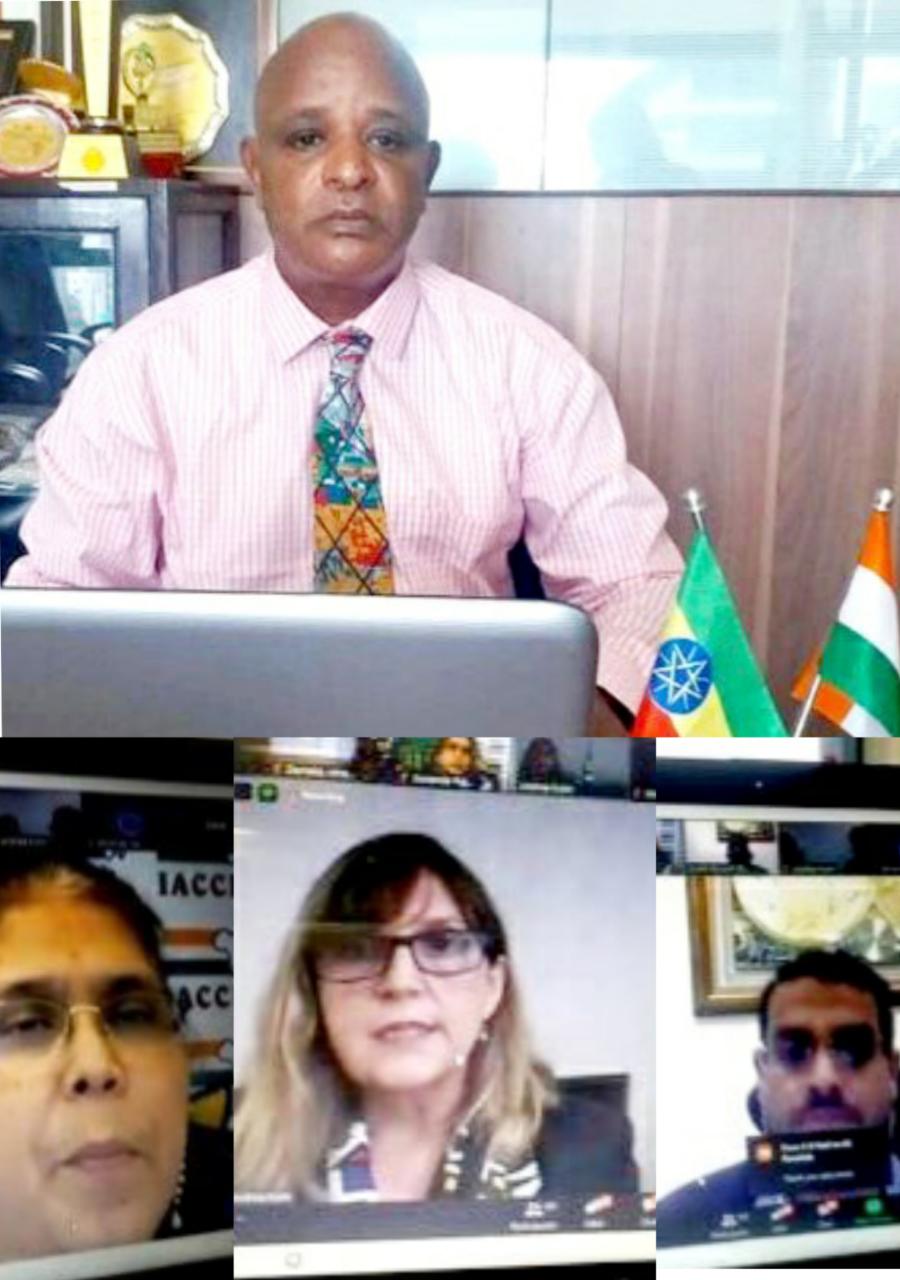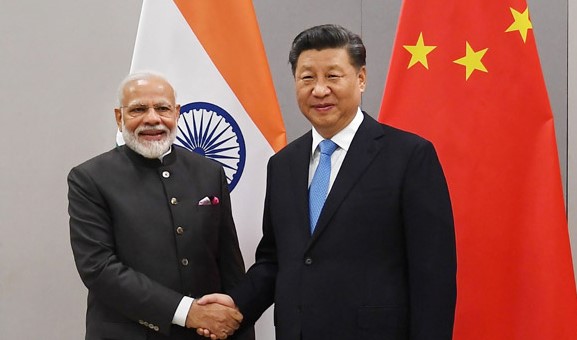By Mewati Sitaram – Beijing
The fourth “Oriental Civilization Summit Dialogue” was successfully held in Beijing, co-hosted by The Mencius Foundation and the Qufu Confucius Academy. The conference, themed “Mencius Wisdom: Exchange and Mutual Learning of Civilizations,” attracted former political figures and renowned experts and scholars who engaged in in-depth discussions on the exchange and mutual learning between Oriental and Western civilizations.
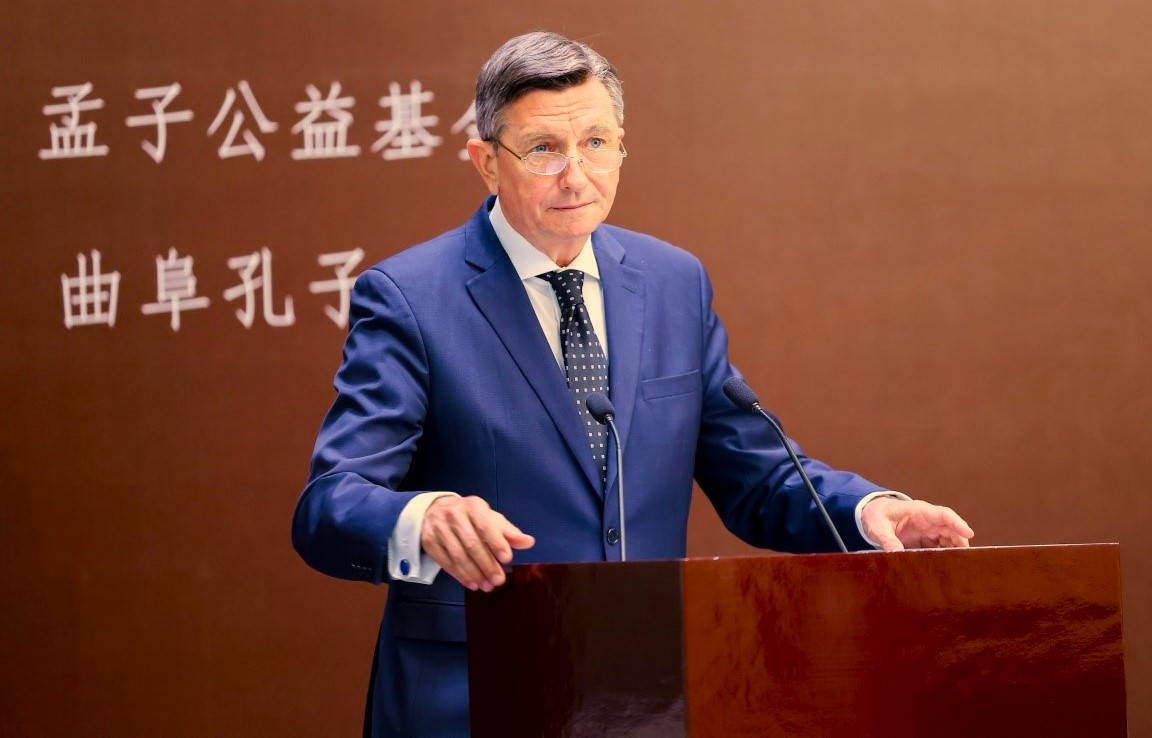
Former Slovenian President Borut Pahor speaking at the podium: Photo Mewati Sitaram
In the opening address, Jefferey Meng, the chairman of The Mencius Foundation, emphasized that Mencius’s theory of the innate goodness of human nature provides a moral foundation for global cultural exchange and mutual learning. He highlighted that Mencius’s philosophy of benevolence can guide people from various nations to treat other cultures with compassion, respect cultural diversity, and foster harmonious coexistence among different civilizations. Meng argued that Mencius’s wisdom offers intellectual support and practical guidance for global interaction and understanding. In today’s interconnected world, embracing Mencius’s teachings can help promote harmony and inclusiveness, thereby advancing the prosperity and progress of global civilization.
Former Slovenian President His Excellency, Borut Pahor addressed the complex and severe nature of the current international situation, underscoring the positive role that the benevolent thoughts of Confucius and Mencius can play in promoting world peace. He stressed that striving for peace and preventing war is the moral obligation of every nation, while engaging in dialogue is a political responsibility that must be upheld by all countries. Pahor emphasized that if dialogue does not yield solutions, it is imperative to return to the table and continue the conversation.
Pahor noted that the world has become multi-polar, and many political and legal systems established post-World War II are now obsolete. He questioned whether the international community can successfully and peacefully update these systems in time. “The West and China need to talk more than they do now,” Pahor remarked, asserting that the power of dialogue is far from exhausted. He expressed optimism that resolving fundamental issues between the West and China through dialogue could have a decisive impact on the future of world peace.
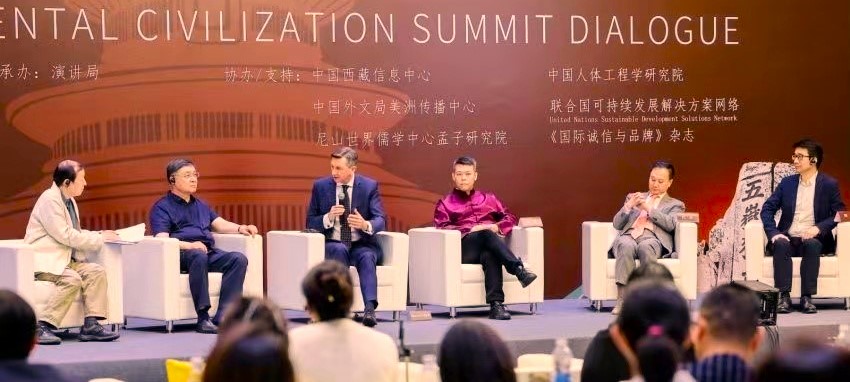
Dialogue session of Fourth Oriental Civilization Summit Dialogue: Photo Mewati Sitaram
Mr. Kong Zhong, the Executive Chairman of the World Federation of Confucius Descendants, highlighted the unity of human civilization and the importance of dialogue centered around cultural differences. He invoked the Confucian principle of “harmony without uniformity,” emphasizing that while the world is diverse in languages and customs, the aspiration for enlightenment is universally shared. He called for a profound recognition of the value of China’s traditional culture at this historical crossroads, alongside an understanding and acknowledgment of Western traditional philosophy.
Professor Zhang Tao from Beijing Normal University underscored the significant role that Mencius’s thoughts play in constructing a community with a shared future for humanity. He noted that contemporary manifestations of Mencius’s ideas are seen in the principles of innovation, inclusiveness, unity, and peace.
Professor Xie Maosong from Tsinghua University discussed the origin of the term “civilization” in the “I-Ching,” stating, “Civilization is like the sun shining over the earth, with the same sun in both the East and West.” He emphasized that the Global Civilization Initiative promotes the exchange and mutual learning of civilizations, forming the foundation for all nations’ peoples to pursue virtuous living and a beautiful society.
Deputy Mayor Zhou Kai of Qufu, Shandong, explored the innovative and inherited aspects of Confucian thought based on a big data model derived from Confucian literature. He believes that Mencius’s theory of the innate goodness of human nature and benevolent governance further highlights his unique position within the Confucian ideological system.
The summit dialogue was supported by organizations including the China International Communications Group (CICG), China Xizang Information Center, and the Mencius Research Institute of Nishan World Confucianism Center.
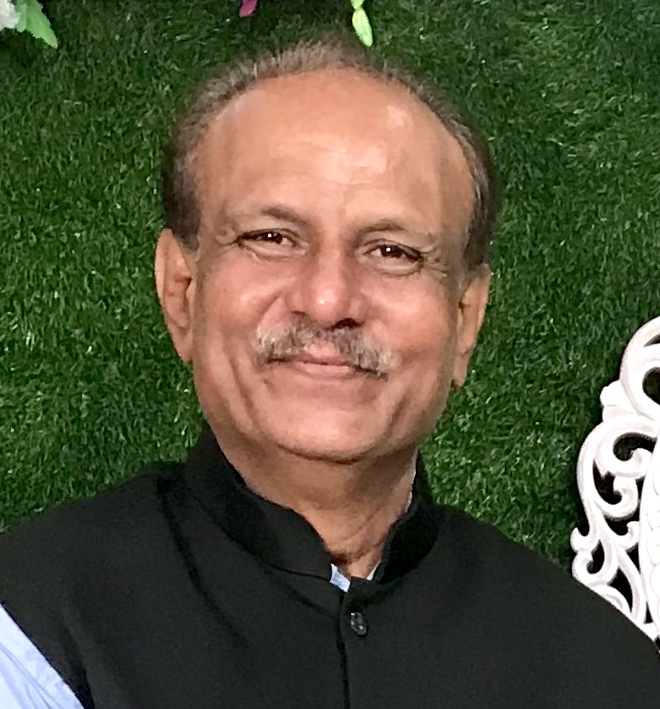
Editor in Chief : Mewati SItaram

